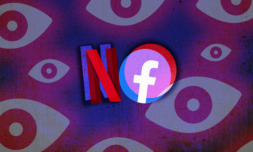Hacktivist groups are continuing to punish Russia with a multi-pronged digital assault. Last week, decentralised groups released some 820GB of sensitive files, crashed the Moscow Stock Exchange website, and hijacked live Russian TV broadcasts.
Whether you cheered or rolled your eyes at its declaration of ‘cyberwar,’ the rogue hacker outfit Anonymous has returned to make trouble for Russia.
Back in late February, Ukraine’s deputy prime minister Mykhailo Fedorov announced the formation of a volunteer-led cyber army which currently stands at 300,000 skilled IT professionals.
Creating a legitimate bridge between decentralised digital activism and state sponsored hacking seemed a pretty big deal, but Ukraine’s so-called IT Army quickly had its thunder stolen by the familiar caricature of Guy Fawkes on YouTube.
Over the thematic backdrop of grainy protest clips and noughties voice changers, Anonymous revealed its own #OpRussia vendetta (if you will), which would see it target thousands of websites and unearth Kremlin military files.
‘We, as activists, will not sit idle as Russian forces kill and murder innocent people trying to defend their homeland,’ the group said on Twitter.
In the weeks that followed, both entities have been very busy, evidence of outside hacktivists is circulating, and Russia continues its own barrage of cyberattacks against Ukraine.
Taking exception to Vladimir Putin’s aggressive crackdown on social media platforms – and the draconian ‘fake news’ law he’s enforced – Anonymous has allegedly targeted Roskomnadzor, the Russian agency responsible for censoring national media.




















